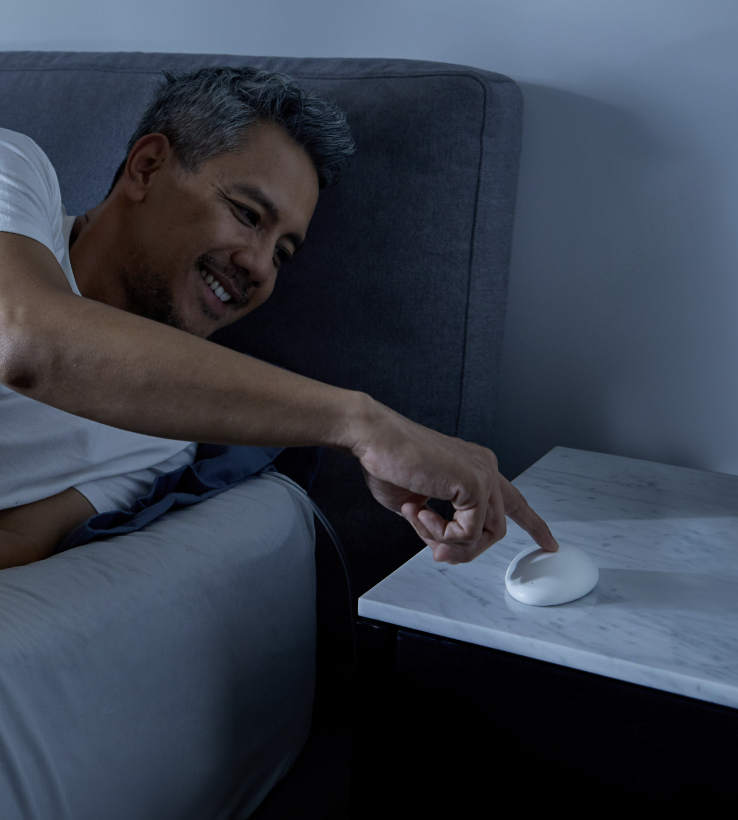Millions of people worldwide are affected by snoring. While it may seem like a benign occurrence, snoring can have a significant impact on overall health and sleep quality for both the snorer and their sleep partner. In this article, we will explore how snoring can impact the quality of one’s sleep, how snoring can negatively impact a relationship, and share a few practical strategies that may help make managing this condition better for everyone involved.
Why Do People Snore?
It has been said that everyone snores at some point in their lives, even babies. Snoring occurs when air can’t flow easily from the mouth or nose causing vibrations in the throat tissue that can create audible sounds of varying degrees. Snoring can be light, inconsistent, or if it becomes chronic it could be a sign of a serious underlying sleep-related breathing disorder. Various factors can contribute to snoring, including obesity, alcohol consumption, allergies, nasal congestion, and sleep position.
How Snoring Can Affect Sleep Quality
Before we dive into how snoring affects relationships, it is important to first understand how it affects sleep quality and overall health. Below are examples.
- Sleep Disruption: Quality sleep is the key to a healthy living. When we sleep, our bodies heal themselves. Sleeping seven to eight hours a night helps improve cellular and tissue health, hormone levels, improves cognitive function, immunity, energy levels, and our metabolism. Snoring can cause sleep disruptions for both the snorer and their partner. When the normal sleep cycle is disrupted, restorative sleep is unachievable and both parties wake feeling tired and fatigued.
- Sleep Deprivation: Snoring that becomes chronic can lead to sleep deprivation, which creates a cascade of adverse effects on the body and mind which can cause a variety of health issues including high blood pressure, depression, obesity, stroke, diabetes, heart disease, and a weakened immune system. Furthermore, may experience impaired cognitive function, reduced focus, lack of productivity, and an increased risk of accidents and injuries.
- Sleep-Related Disorders: While snoring can be harmless, in some instances it can be a symptom of a more serious condition like obstructive sleep apnea (OSA). OSA occurs when the airway becomes completely blocked during sleep causing bouts of brief, yet recurring interruptions in breathing. If an individual wakes up tired or is told that they snore loudly, it is possible that sleep apnea is to blame. But not all snoring is apnea, so if you are unsure of the root cause, the best thing to do is consult with a medical professional.
How Does Snoring Impact Relationships?
Snoring can impact a relationship in negative ways if not addressed openly and collectively. Below are just some of the ways that snoring can cause issues within a relationship if it isn’t addressed head on.
- Resentment and Frustration: Some partners of snorers may get resentful or even frustrated if they are consistently deprived of sleep. Over time, this can put a strain on a relationship if it isn’t addressed.
- Sleeping Arrangements & Physical Intimacy Can Be Affected: Snoring can affect everyone within earshot. When it comes to non-snoring partners, they may move to the other side of the bed or another room altogether. If the snoring isn’t addressed the mounting frustration may lead to physical and emotional distance within the relationship. Sleeping separately may further impact the emotional connection and intimacy.
- Communication Breakdowns & Diminished Emotional Intimacy: When people are sleep deprived, it can affect the body’s cognitive abilities and can make processing information less efficient, reactions can be slower, and it can even affect our mood. Sleep deprived individuals are less likely to engage in effective communication and may even find it difficult to address the issue constructively. This can further negatively impact the emotional intimacy and the overall satisfaction within a relationship.
How To Address Snoring With Your Partner
If snoring has become an issue in your relationship, it will require a cooperative approach between partners. Here are a few practical strategies to consider:
- Talk About It Openly: Open communication is the key to all healthy relationships. Honest discussions about how the snoring is impacting both partners should be discussed. The non-snorer should avoid blaming or shaming the snorer since they may be unaware of their condition and it could lead to defensiveness, which isn’t productive.
- Seek A Professional Opinion: If there is concern about the snoring or a medical condition like apnea is suspected as the underlying cause, seek medical attention. A sleep study can provide valuable insights into the root cause and help guide treatment protocols.
- Make Some Lifestyle Modifications: Snoring can be exacerbated by certain lifestyle choices. Making sure you maintain a healthy weight, avoiding alcohol and caffeine to close to bedtime, sleeping on the side of the body rather than the back, and keeping allergies in check can all help alleviate or reduce snoring.
- Create A Relaxing Before-Bedtime Routine: Create a bedtime routine with your partner. Getting into the habit of reading a book, practicing relaxation techniques, listening to meditative music, taking a warm bath, or utilizing a white noise machine signals to the body that it is time to wind down making it easier to fall asleep.
- Sleep Separation: If all else fails and the snoring persists, it could be a good time to modify the physical sleeping arrangements temporarily. While physical intimacy may be affected, the separation will provide an opportunity for both parties to rest and regroup.
Takeaway
Snoring can have far-reaching implications on both sleep quality and intimate relationships. Disruptions in sleep can negatively impact the overall health of the mind and body and can lead to sleep deprivation, cognitive impairment, and mood swings. When it comes to relationships, snoring can lead to physical and emotional distance, resentment, and communication breakdowns. However, when couples collectively approach the issue with honesty and empathy, they can work together to address the snoring and its effects on both the quality of sleep and the relationship.














